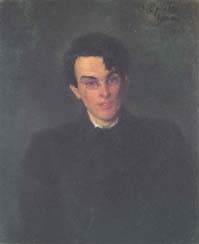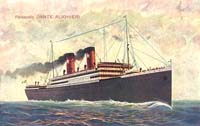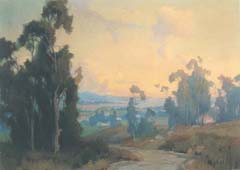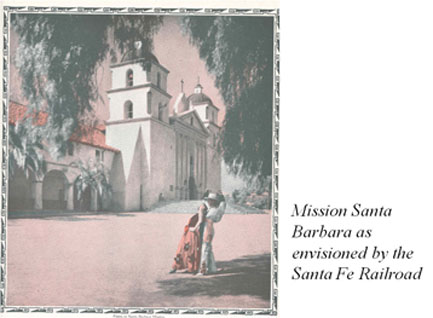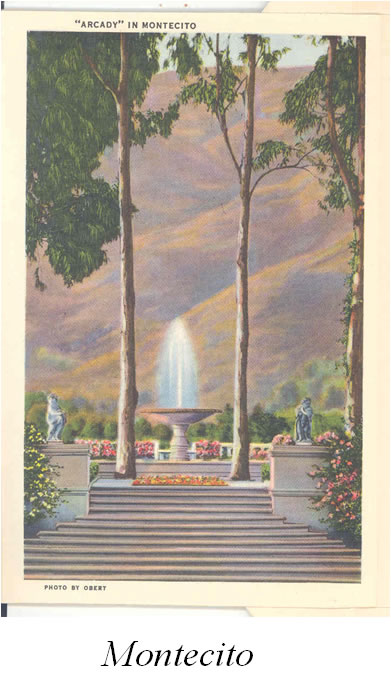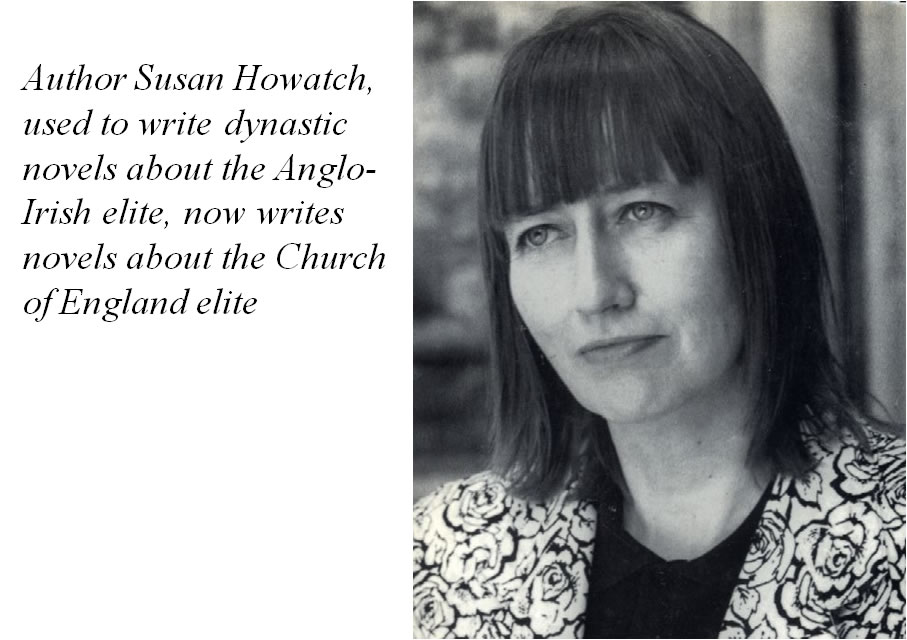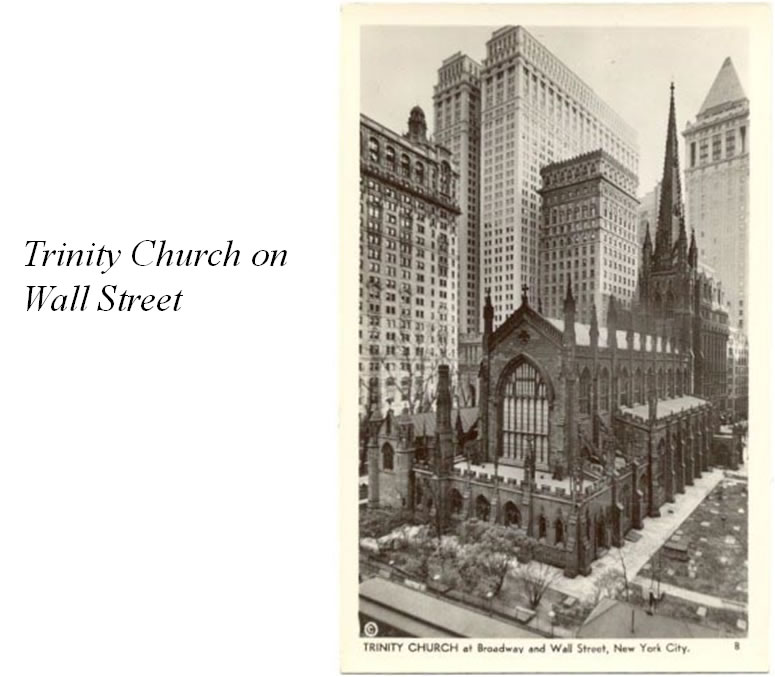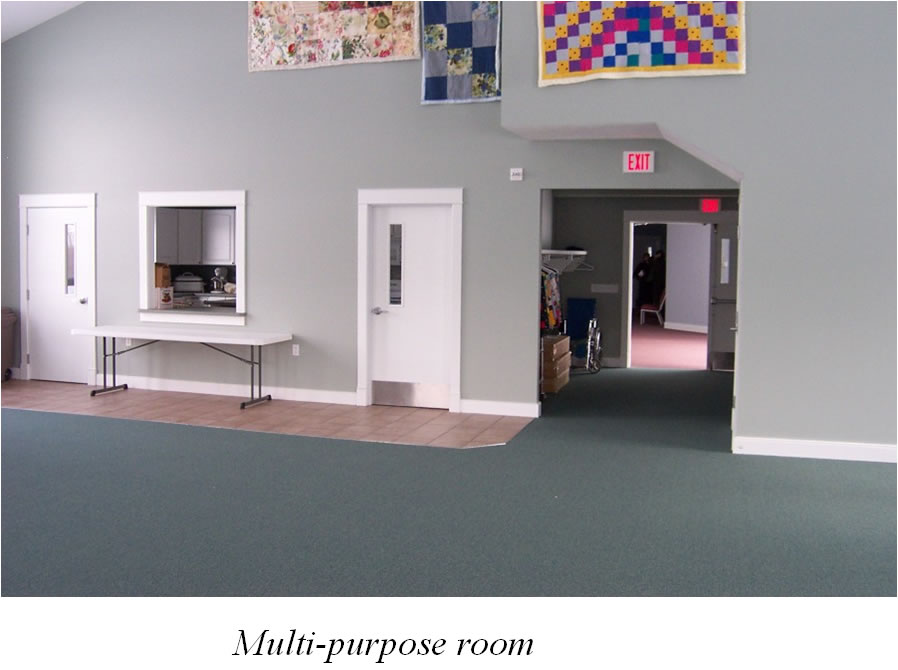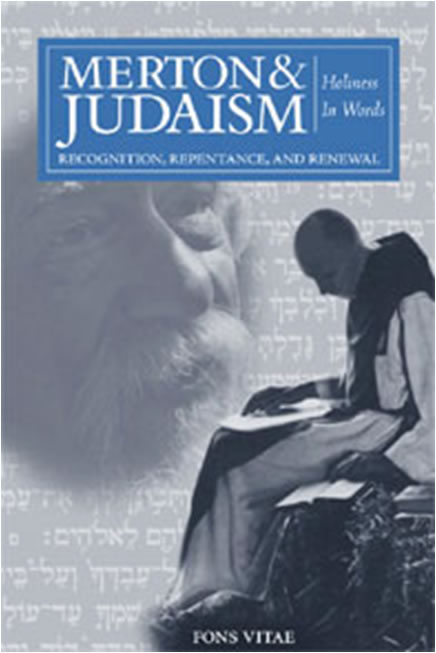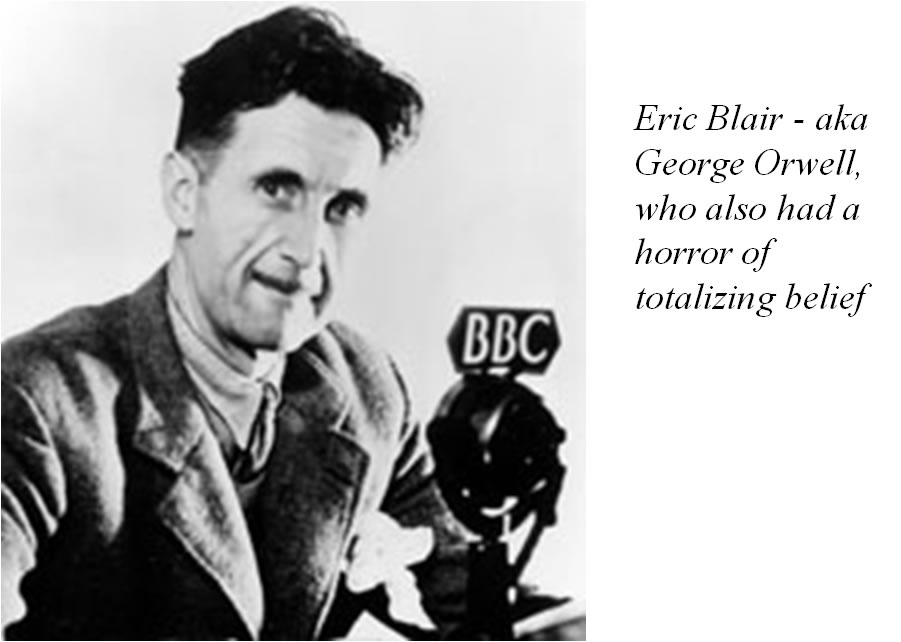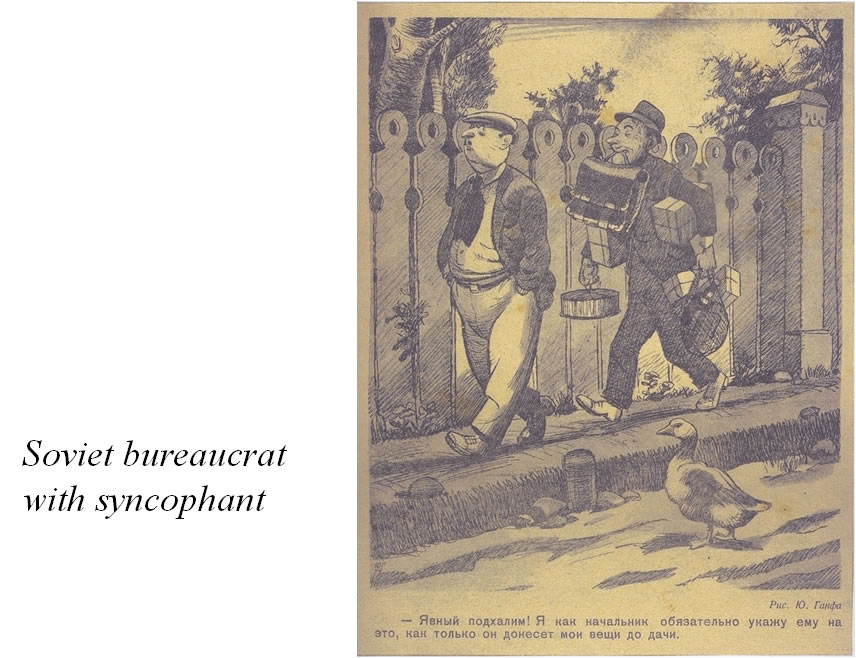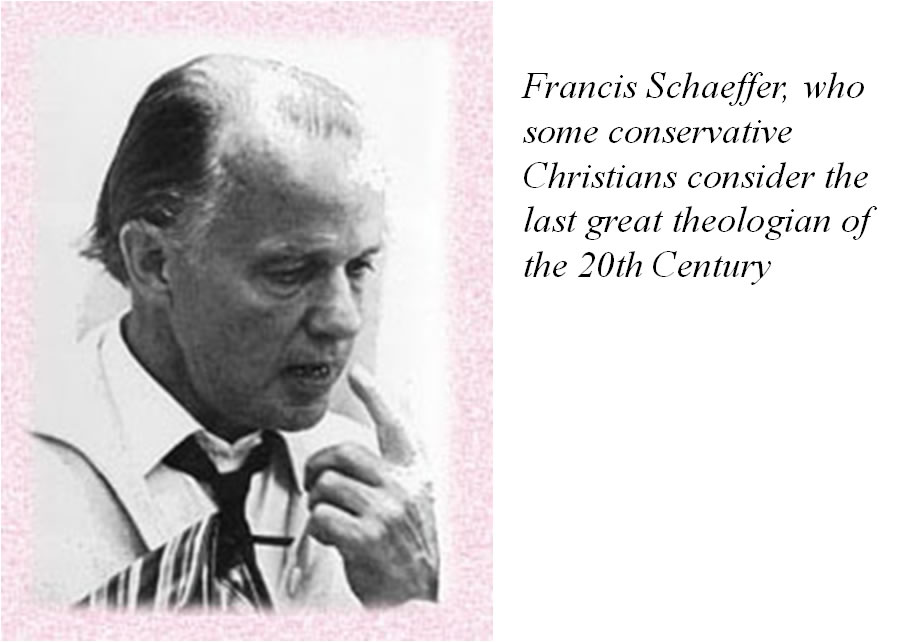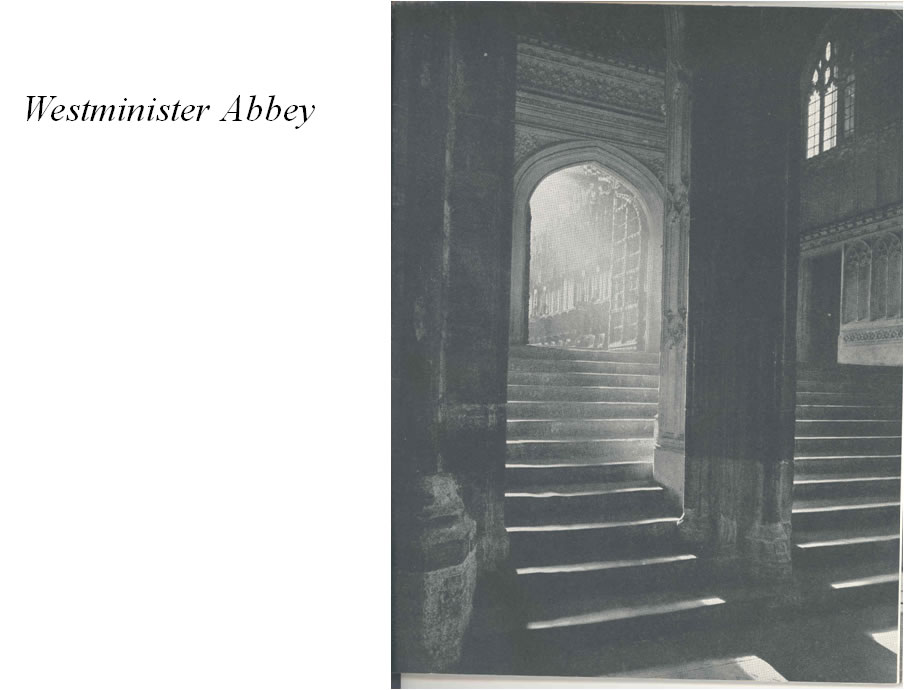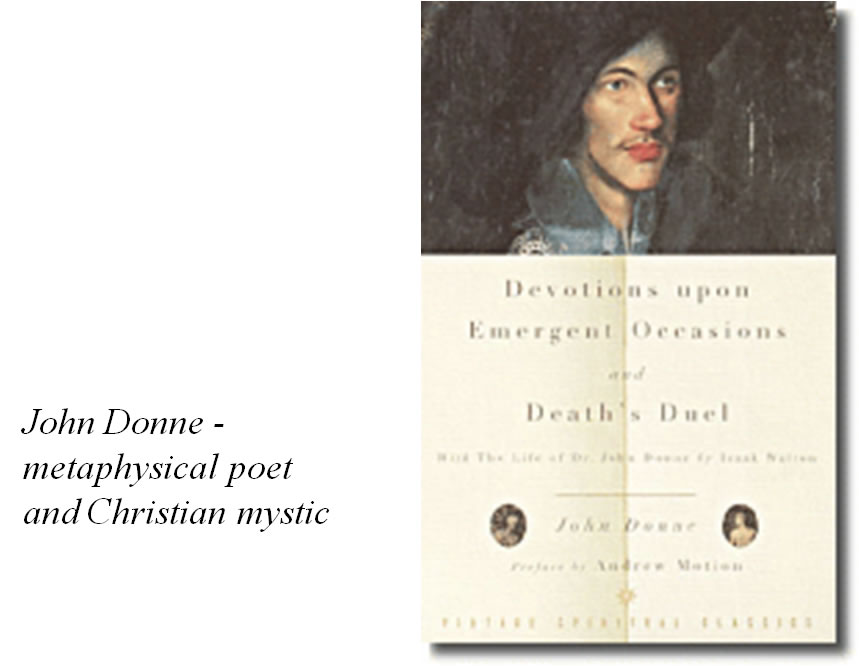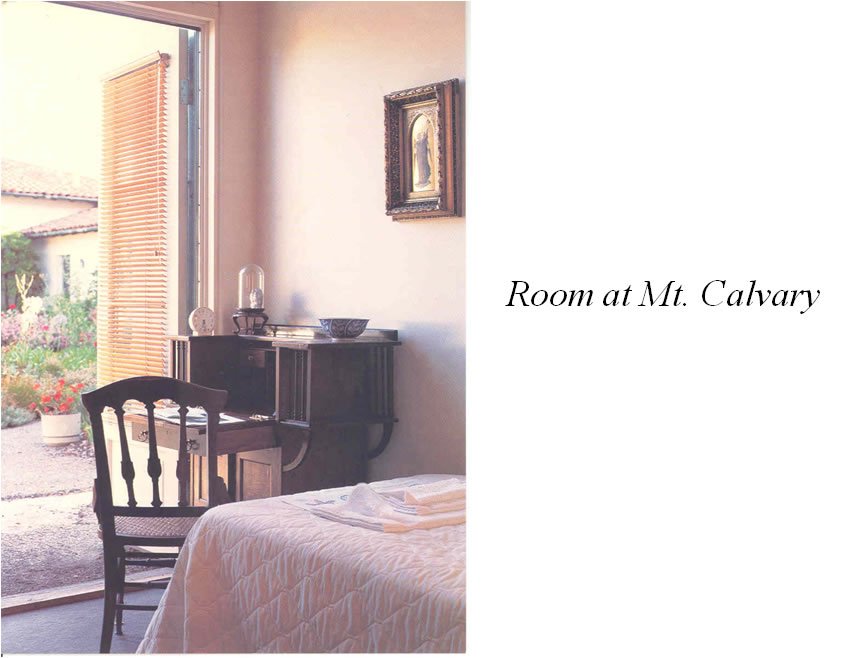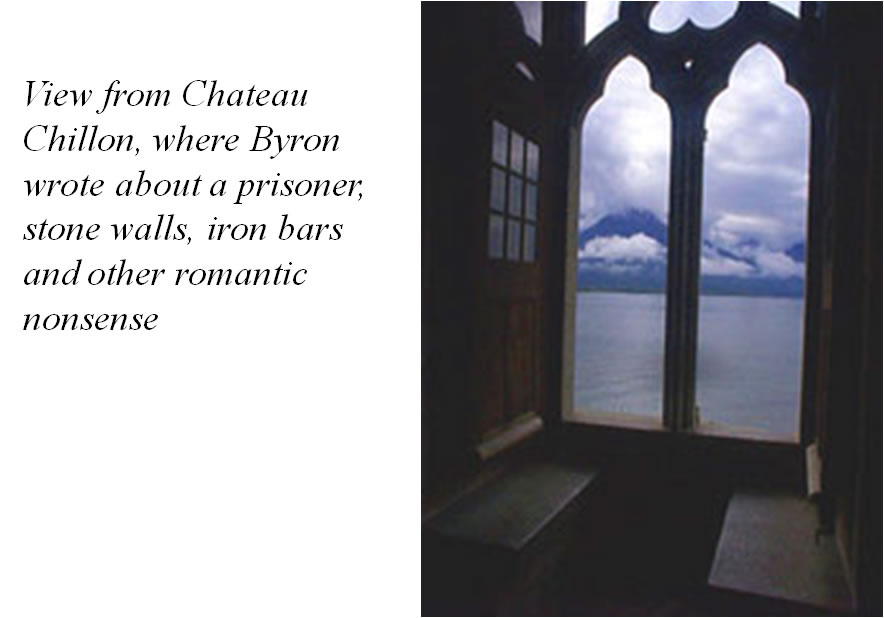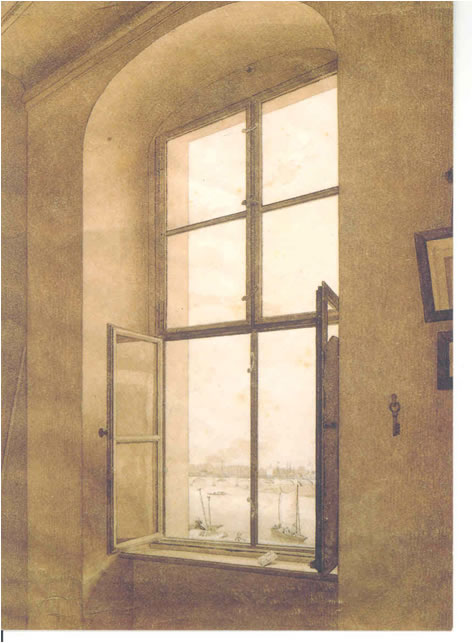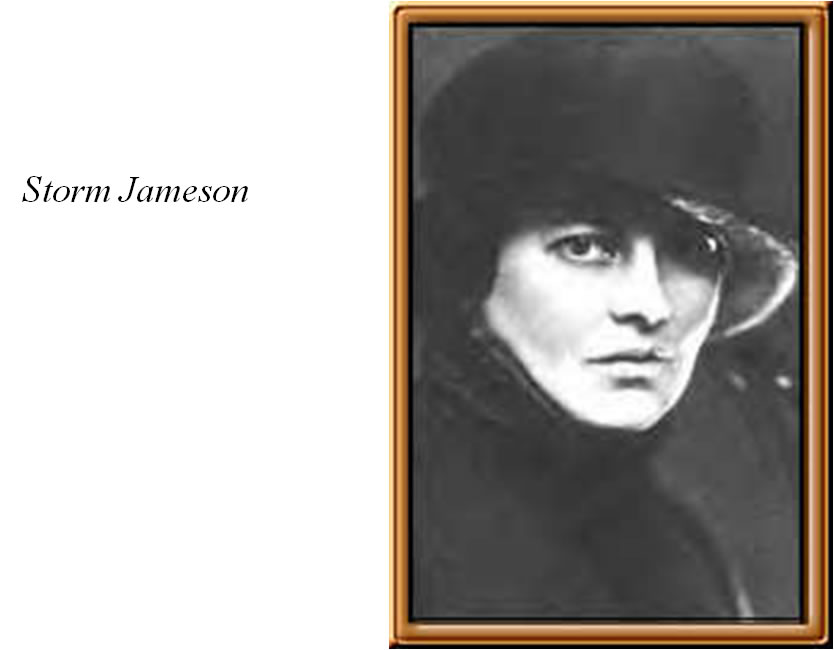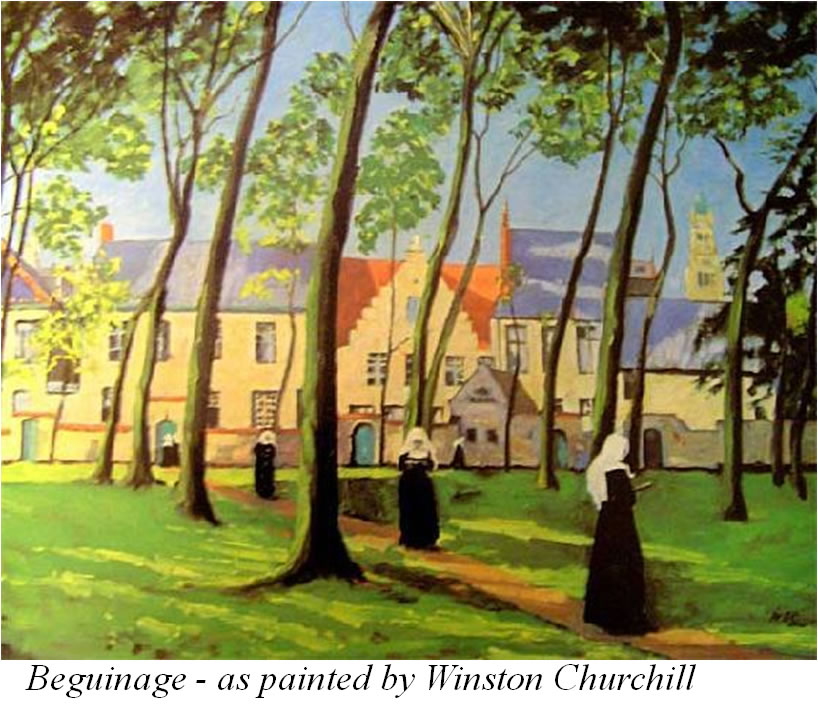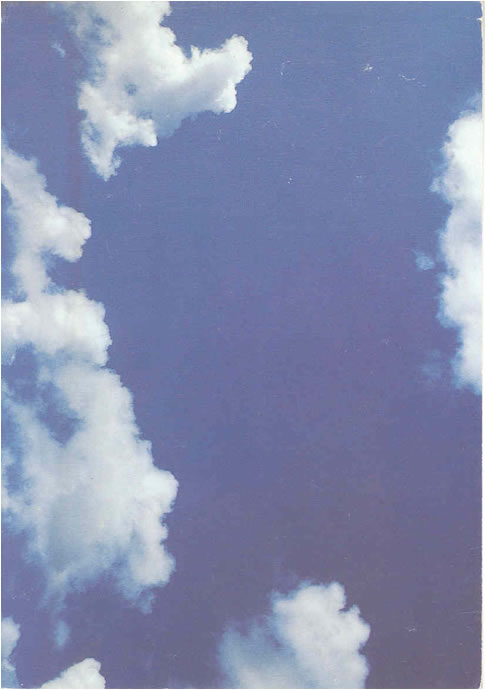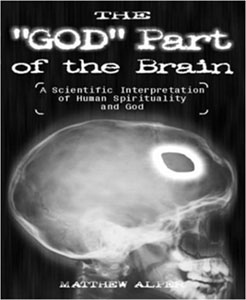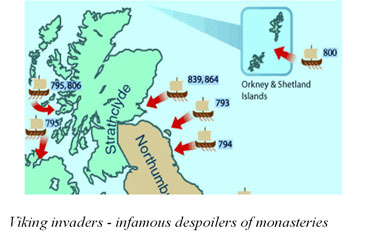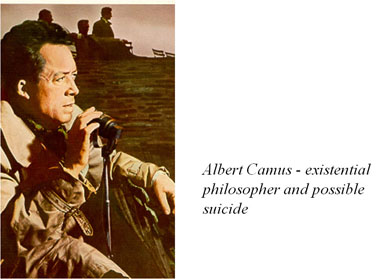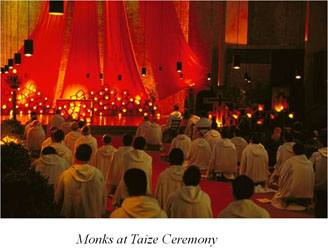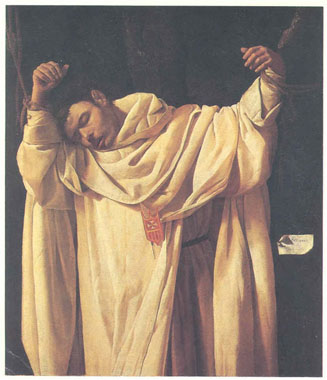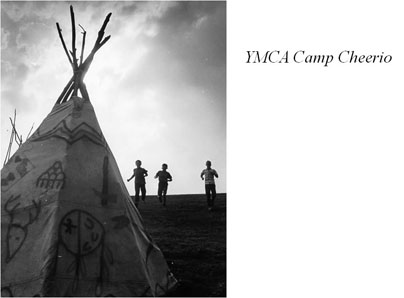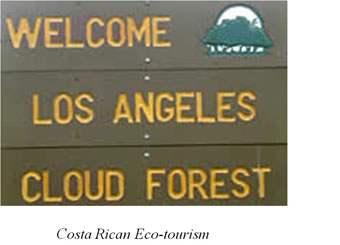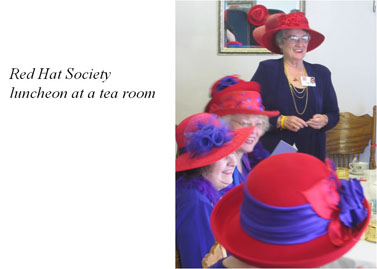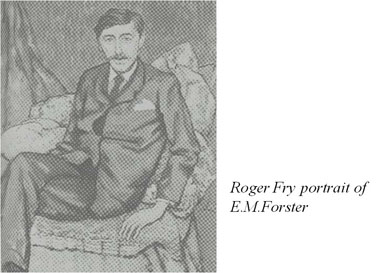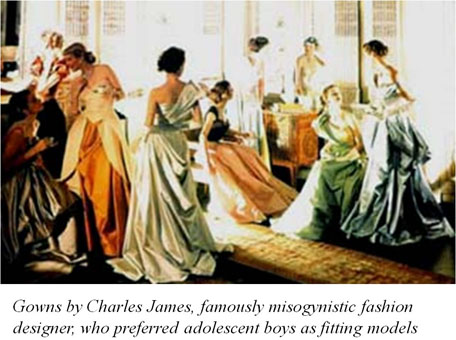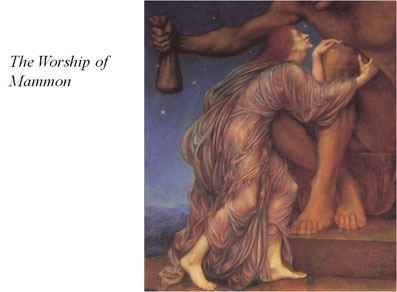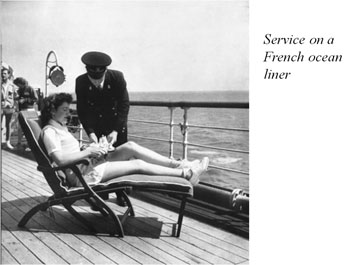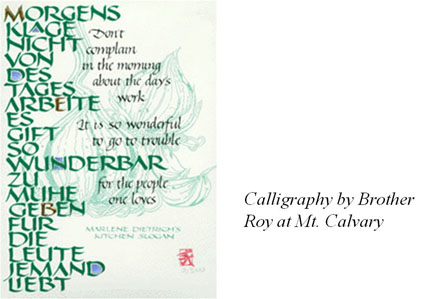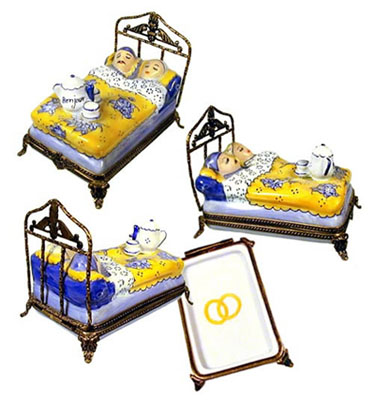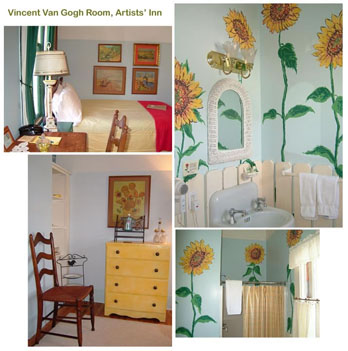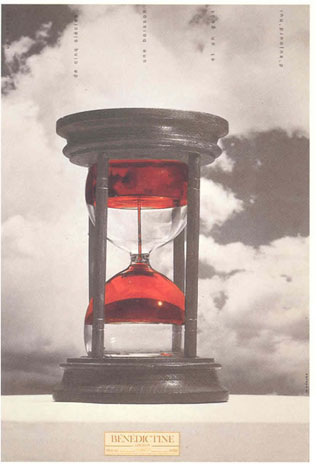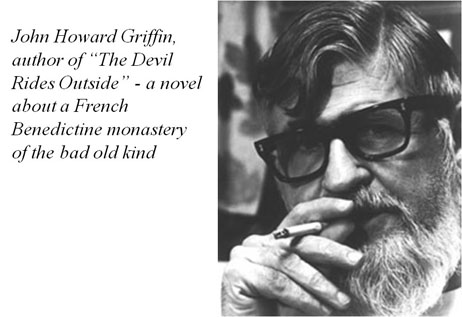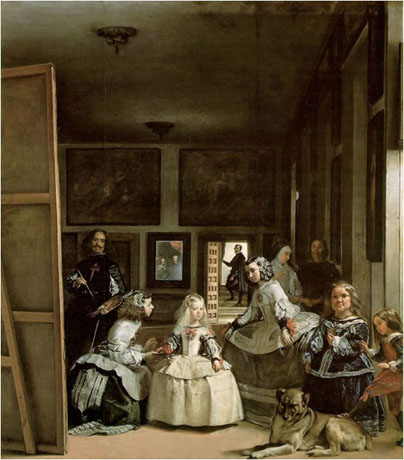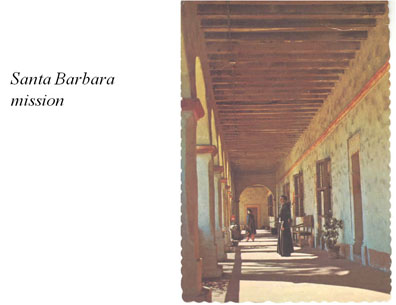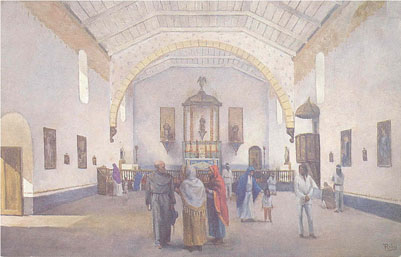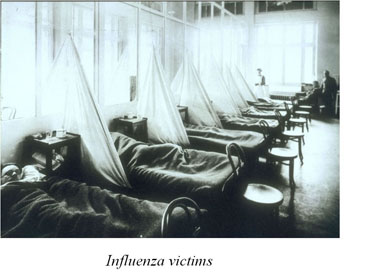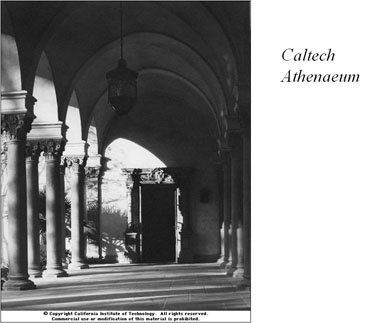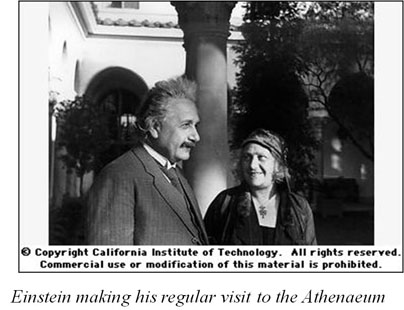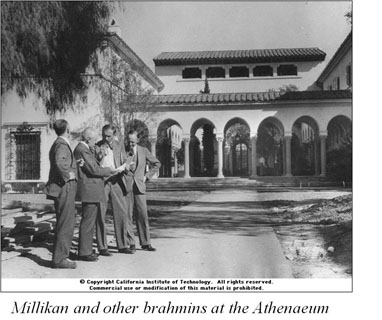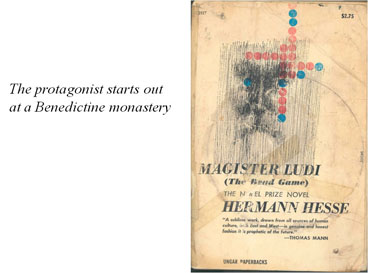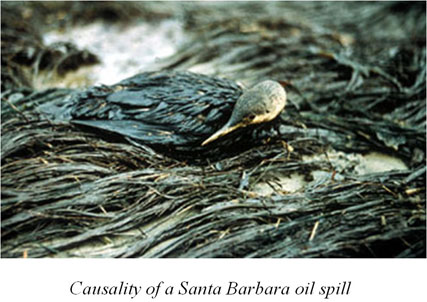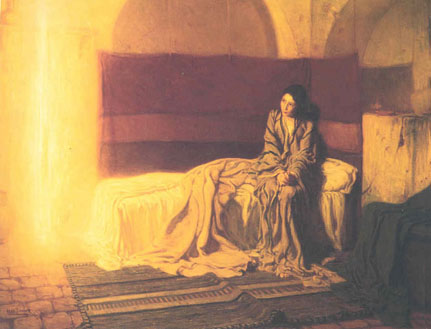St. Benedict was a guy who sought a monastic way of life, founded the monastery at Monte Cassino sometime around 500 AD, and wrote a set of rules on how to be and live in a monastery. The rule of St. Benedict, while based on other contemporary musings on the subjects, distilled a kind of genius and wisdom on the monastic life -- and was adopted all over the world from then on. The Order of the Holy Cross, flavah of Benedictines who run Mt. Calvary, was founded in 1884 by a Harvard-educated Episcopalian who first worked among the poor immmigrants on the Lower East Side of New York. Maybe he ran into my grandfather there? The order he founded was, from its beginning, devoted to good works and being good liberal kids --- in addition to observing all the monastic ideals.
As for Mt. Calvary itself, the place has one of those life-in-the-Far-West histories:
a guy, Karl Tiedemann, who was sent out during World War II in part with a mission to Pyramid Lake Pauite Indian Reservation in Nevada, and who became a famous intinerant preacher in the West, set out to found a western monastery for his order. Presto chango strange to behold, the lord moves in mysterious ways His wonders to behold, Tiedermann's path crossed that of Raymond Skofield. Skofield, who has a park named after him today in Santa Barbara, was a mogul who had begun work in the 1920s on a Larry Ellison-worthy McMansion atop one of the highest hills in Santa Barbara, which he in part envisioned as a place to entertain his pals in his exclusive riding fraternity, the Rancheros. The idea was that they would be able to gallop up the hill and thunder into the central court of his hacienda. However, the Depression had its way with mini-mogul, and while Skofield somewhat recovered financially, he ended up selling the place (structurally complete, but an unfinished shell) in 1947 for $47,500 for what would become a 40-bedroom retreat. Do. Not. Say. Anything. And as for Tiedemann, who must have been a hell of a guy, he set about sweet-talking the grande dames of Monteceito out of furniture and art to furnish the place.
A priest friend of mine told me the story of another priest first arriving at Mt. Calvary who said, "If this is poverty, I want to see chastity".
Where would you rather be: in the Cathedral of St. John the Divine in New York, or some mid-60s multipurpose room
We don't want to be listening to the Other People Yapping. So when I suggested to one of the kindly brothers that there be a "designated quiet room, but with a view", he said "that's a great idea. We could do fundraising for that". This is not a community that relies on bingo to help with its roof repairs....
Being an Ashkenazi at Mt.Calvary (like every Eastern European Jew I know, there are some semi-mythical rabbinical ancestors --- and I retain an unease with pork loin and with Catholic masses), I was reminded of the famous crack made about Sidwell Friends, the elite private school in Washington DC (Chelsea Clinton is its most famous recent alum).
So while the religion never rubbed off (like most Americans, I have the Clifton's Cafeteria view of the spiritual life: take what I like, and ignore the rest, and I never disown my Jewish heritage, except when it gets in my way): I am calico cat
But the quaint, if overtly-stated belief system of Christianity, was really not the point at Mt Calvary: for what the place really offers is the brand Hemingway turned into a market-leader: the dream of the clean-well-lighted room
Only here, it has the value-add platinum-club member bonus package extra snacky goodness of spiritual harmony.
A friend of mine, who used to be the media minister at Grace Cathedral, once remarked to me "oh my atheist friends have the -best- spiritual experiences"
of civilization and learning and community and tending to one's garden amidst a barbarian and brutish civilzation. Yeah yeah yeah, only now, post-1960s
In addition, and as an improvement on Ventana or Sea Ranch or Elizabeth Arden's Maine Chance, Mt. Calvary provides the superior aesthetic of having actual monks on site.
This makes being there a real spiritual experience, not like a visit to a YMCA camp
I was also struck by how most of the retreatants were folks clearly in midlife crisis, with a particular over-representation of middle-aged women --- like me. There is always that superfluity of women 45+ older
Spirituality is said to be the last refuge of the coquette; former supermodels
[The reason I am not sure if it were Pignatelli is that I read an interview with the woman in question a few years back and found it fascinating -- but it was one of those at the doctor's office/at a friend's house/Elsewhere reading- experiences so unlike everyone else on the planet -I- don't steal Other People's Media --- so I didn't take the feature with me. And obviously I didn't think that I would ever need to refer to it again, as much as the subject in question provided a morbid fascination. But of course since I can't remember if it was in "Harpers Bazaar" or "Vanity Fair" or some other slick that I read about her, and I don't remember her name --- and cyberutopian fantasies to the contrary, not only is everything NOT online, but that which is online isn't easily searchable --- so while Pignatelli -might- be my exemplar, she might also not be. Pardon]
Isn't it so much more likely that an ageing once-beauty finds comfort in her past lives, whether in another decade (think of Madame Hortense, the elderly former courtesan in "Zorba the Greek", with her tales of her generals) or in another incarnation? Religion is so often the comfort of women --- recall when Helen Mirren is foisted off onto the priests when, sick in late-stage pregnancy in the Merchant-Ivory production of Forster's
So I felt -sorry- for this Benedictine community of men in the Anglican communion, sworn to a life not mated --- who spend the majority of their time with women. It's rather like the phenomenon of gay hairdressers and fashion
And I was a more than little non-plussed by how "ready to of service, ma'am" the monks were, solicitous and full of that good cheer that members of caring Christian communities (in fantasy) everywhere extend to all God's children. Ick! I do not believe in caring and sharing (at least not on general principle) and don't think everyone is loveable (in fact I don't believe in unconditional love at all) and as Huntington Hartford said, the public be damned. Not to mention, I've only experienced that personalized attentiveness in places where folks are paid gobs of money and/or are in terror of losing their jobs and/or are bucking for promotion and/or are trying to promote repeat business. That is, where the humans in question are both enslaved by and goaded on by the powerful minor darkside demiurges of fear and greed
Turns out these guys belong to that order of the Benedictines that sees as its mission hospitality to the stranger; being around these monks gave me a glimpse of what it must have been like to have taken a trans-Atlantic passage on the S.S. Normandie.
"Were you warm enough last night?"
Things I needed magically appeared in my room; books I might be interested in were given to me over lunch; email addresses and author names for further study were hand-written out for me in beautiful neo-Gothic poster-worthy Italic printing.
Theirs is much more comfy, modern, toney, Esalen-inspired, living-well-is-the-best-revenge philosophy: luxe, calme, and volupte are the way to find God --- if you understand this to mean good food and great views and fabu architecture (good bones will tell) and a sanctuary with the austere ecumenical beauty of a zendo and perfect feng shui for the site (all rooms seemed best oriented to take advantage of the stunning location; maximum doors and windows everywhere to prove fun and easy egress and multiple routes to everything. openess is the watchword) and high ceilings and bedside lamps at just the right distance from the bed.
Let's just say most expense-account hotels I've stayed in weren't as well-oriented for rest and good things to look out on.
Only you cannot ordinarily even -pay- kazillions of dollars to be in a space like this: a magnificient old building with beamed ceilings, mullioned windows, long hallways suggesting Velasquez
It's the kind of stillness where eventually the buzzing of bees in the rosemary seems over the top; it's not that all you need is the air that you breathe but between the snug solitary spare room with the view, the high white-washed walls, and the great silence that begins every night, ending not after bells for vigils (6:15 am) nor by the bells for lauds (7:30 am), but only after breakfast (8:15 am), there's a blessed self-sufficiency. Peace that passeth understanding isn't exactly the peace of God (I don't believe in God), but yes, it does consist of being able to listen to that still private voice within.
It's not precisely that heaven is the place where nothing ever happens, or that paradise is definitionally, always a walled garden; it is perhaps that the child's vision of paradise remains our own: the place where we are loved and left alone, we are supported and allowed to be
